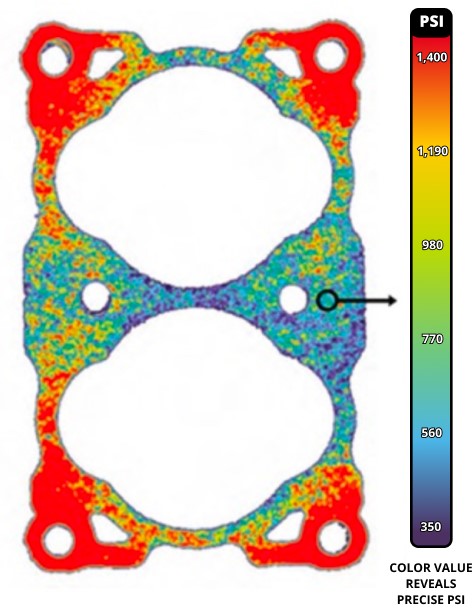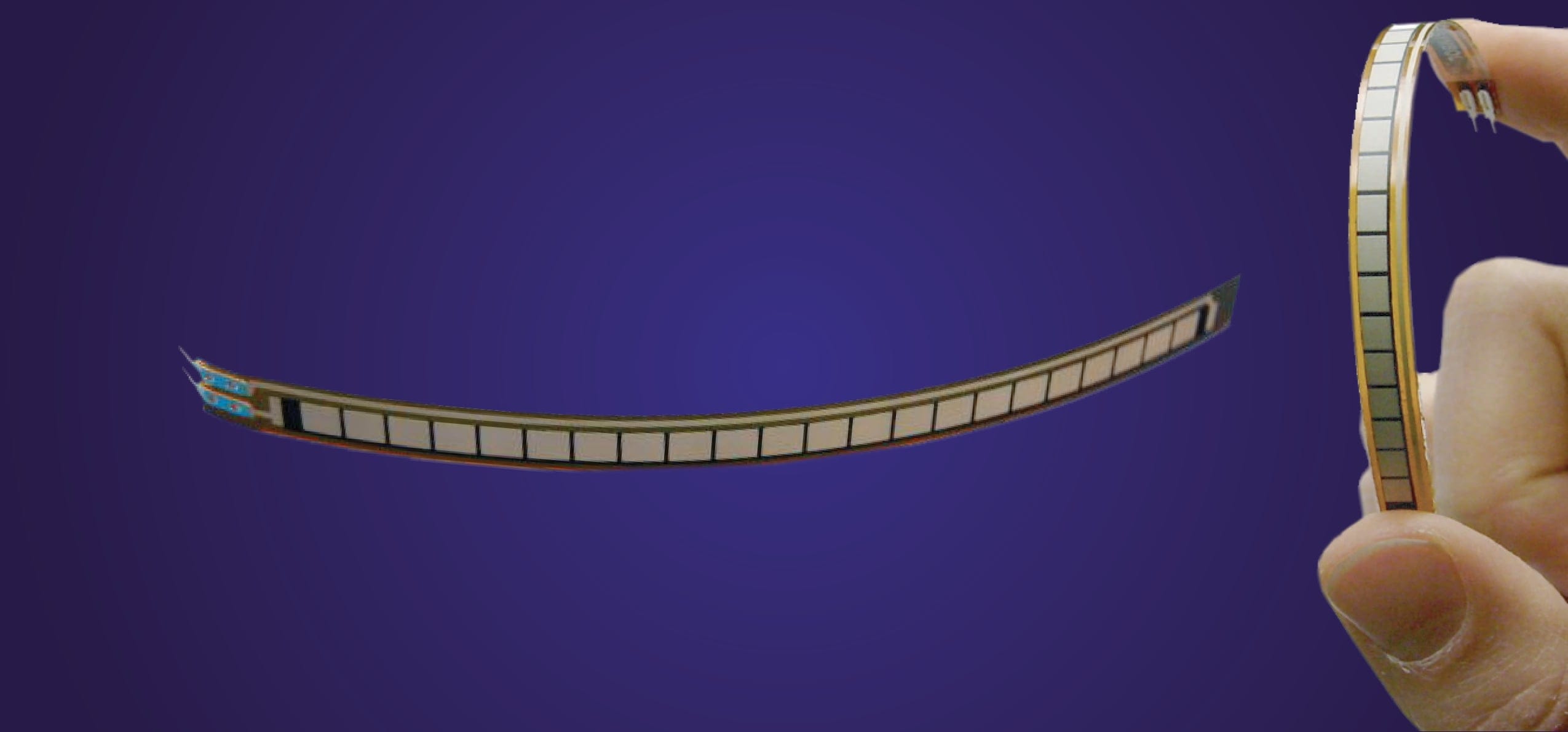
Tactilus® Flex is a thin resistive sensor that produces an output based on the degree that the sensor is bent.
Tactilus® Flex is ideal for any application or device that requires the measurement of a repetitive bending, striking deflection, acceleration or range of motion. Additionally, Tactilus® Flex is proven for high speed impact measurements.

Tactilus® Flex sensor captures a bending moment and produces a signal proportional to that bend.
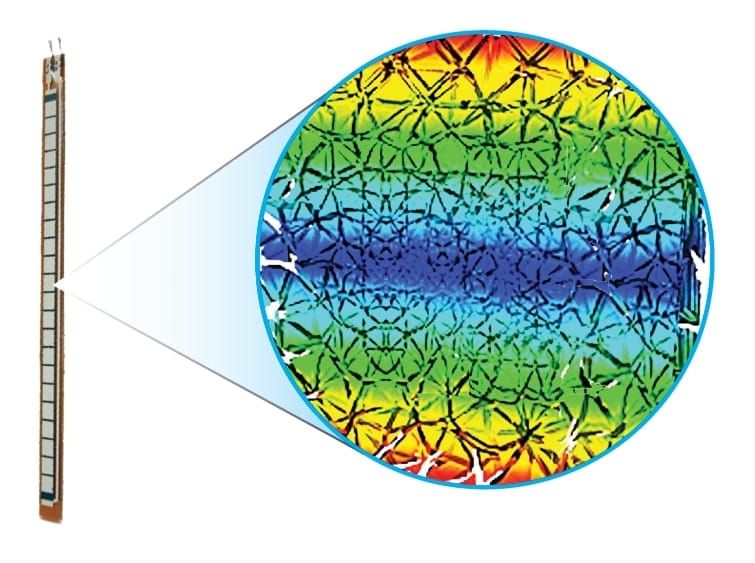
A series of stress fractures purposefully introduced, conditions the sensor element to react to moments of bending or impact unlike any other sensor.

Request a Sample
Download
White Papers
- A Pneumatic Glove and Immersive Virtual Reality Environment for Hand…
- Design and validation of low-cost assistive glove for hand assessment…
- Development and evaluation of a low cost sensor glove for assessment…
- A shape memory alloy-based tendon-driven actuation system for biomimetic…
- A low cost instrumented glove for extended monitoring and functional…
- Sensing Bending in a Compliant Biomimetic Fish
- Reduction of excessive electrical stimulus during electric pulp testing
- Design considerations for a wearable monitor to measure finger posture
- Evaluation of a Hybrid Elastic EVA Glove
- Improving performances of data gloves based on bend sensors
The Technology
The Tactilus® Flex sensor is based upon a screen printed resistive ink thin films sensors with introduced stress fractures and voids of uniform dimension and known characteristics. Through this patented fretting process Tactilus® Flex derives its unique characteristic of being able to repeatedly indicate the degree of a bending moment. Other sensors are sometimes capable of indicating when they are bent, but none of them are specifically designed for this purpose and they fail to be repeatable or accurate.
Common Applications Include
- Human body interface, biomechanics,ergonomic research
- Air / fluid flow
- Industrial controls
- Consumer / industrial products
Benefits over other Technologies
- Lightweight, thin and low profile
- A fraction of the price of conventional actuators
- Non mechanical. Solid state
- Extraordinarily durable (>35 million cycles)
Construction
Each Tactilus® Flex sensor element is sequentially serialized and quality tested to ensure the highest repeatability and freedom from defects. In addition, our sensor assemblies feature ergonomic and high quality Berg connectors, ensuring durable interconnection.
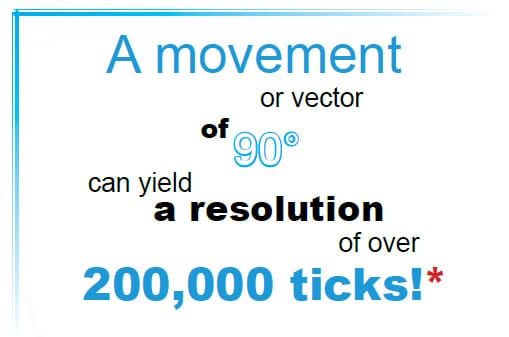
*Experiment performed by bending sensor over a 3″ (75mm) diameter cylinder. Sensitivity can be enhanced if necessary.
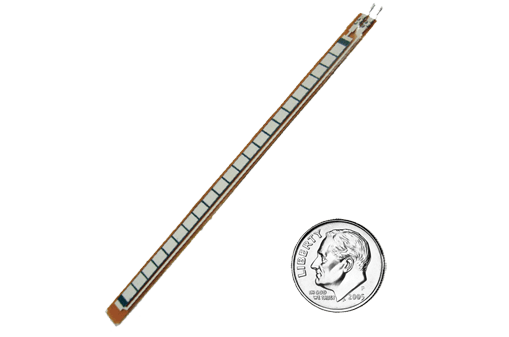
Tactilus® Flex sensors can be made in a variety of shapes and sizes
Our Capabilites
We will design and build bend sensors to your exact specifications of gauge, dimensions, sensitivity, connector interface and environmental immunity. We perform all elements of R&D and prototyping and are equipped to build our bend sensor into your supplied CAD drawings.
Tactilus® Flex is designed to be integrated into either your existing feedback and control system or connected directly to a multimeter or oscilloscope. Specific interfacing instructions can be supplied.
| Physical Specifications | |
| Min and max bend: | 180° |
| Query speed: | < 1 MHz |
| Durability | > 35 million cycles (0.24″ (6 mm) radius 90° bend) |
| Material: | Polyimide or Polyester films |
| Temperature range: | -76°F to +221°F (-60°C to +105°C) |
| Gauge: | 0.003″ to 0.01″ (0.076 mm to 0.254 mm) |
| Principle of leave: | Resistive ink with introduced micro fractures |
| Voltage: | 3 VDC to 12 VDC |
| Accuracy: | ± 1° |
| Repeatability: | ± 3%* |
| Hysteresis | 7% |
| Non-linearity | ± 3% (subject to test conditions) |
*Repeatability test set up with multiple sensors held straight and tangent to a 1.8″ (30mm) diameter mandrel using light spring tension. The mandrel was then rotated until the sensor was fully involved around the mandrel and then unwound back to the flat state. Amount of change and rate of change were then compared.
Tactilus® Flex is protected under patents 5,157,372 & 5,309,135


